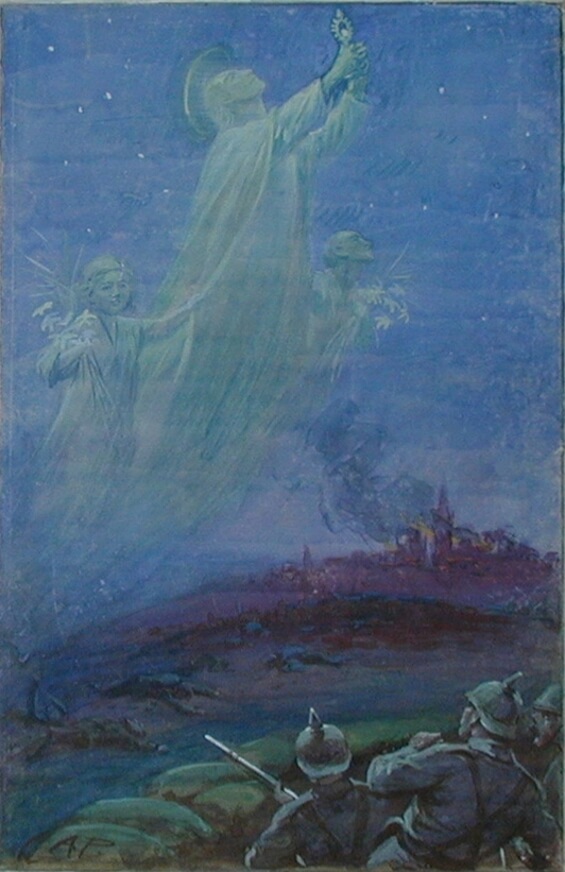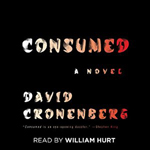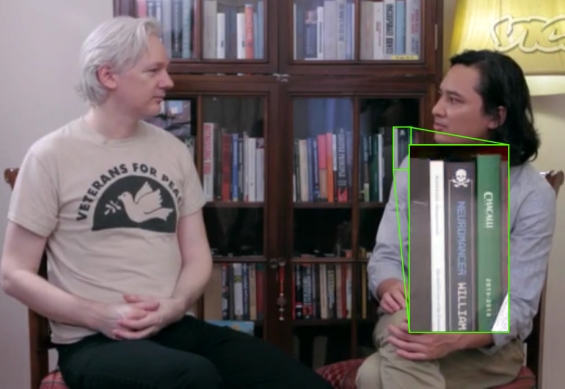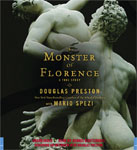
 The SFFaudio Podcast #471 – Out Of The Earth by Arthur Machen; read by Mr Jim Moon. This is an unabridged reading of the short story (21 minutes) followed by a discussion of it. Participants in the discussion include Jesse, Paul Weimer, and Mr Jim Moon.
The SFFaudio Podcast #471 – Out Of The Earth by Arthur Machen; read by Mr Jim Moon. This is an unabridged reading of the short story (21 minutes) followed by a discussion of it. Participants in the discussion include Jesse, Paul Weimer, and Mr Jim Moon.
Talked about on today’s show:
the proper pronunciation of Machen, Arthur Llewellyn Jones, Up Under The Roof by Manly Wade Wellman, apprentice journalist, The Great God Pan by Arthur Machen, The Lost Club, Reading, Short And Deep, identicals, a Hellfire Club, a big scary black book, never heard from again, a very weird story, truly as the first weird fiction author, Edgar Allan Poe, cosmicism, Mr Weird, H.P. Lovecraft, “it is this”, M.R. James, bedrock authors, Machen lived this stuff, a real-life magical society, the Esoteric Order of the Golden Dawn, W.B. Yates, a genuine mystic, landscape, in the modern world people see things on the surface and don’t apprehend the meaning, meta narrative, the interior story, so deeply framed, so nested, the hoopla surrounding The Bowmen, it’s not the story, the story is not the story, the story is the effect of the story, embarrassed by the story, a disappointment, surprisingly funny, a bit of whimsy, the early weeks of WWI, a ray of hope, taken as a genuine report from the front line, the Angel of the Mons, fighting the tide, how rumours take hold without any evidence, “snow on your boots”, reading it a straight up, a weird meta-fiction, pre-Borges, this sounds familiar, so popular, side projects, tales, stories, a meme, fascinating, how many Machens?, not a good story, T.P.’s Weekly, November 22nd, 1915, the retreat from Mons (August 1914), September 1914, six months later, weird podcasts, Tin Foil Hat Podcast, part of being an adult is being interested in the truth, conspiracy, half of capitalism, Clinton and Pizzagate, really fucked up things going on in government, punishment for plebs, a Clinton, New York child sex scandal, in the memory, it couldn’t be killed, all the letters Machen got, death threats, bottom up stories and top down stories, Russia! Russia! Russia!, collaborating or colluding, a conspiracy theorist, the person who testified who can’t be found, the Russian rumor, reports of Russian troops seen in Britain, a plague of spies, Cossacks at train stations heading south, a huge flap, a third myth, the Rape of Belgium, a rumour among German troops, resisting the invasion, buckets full of eyes, necklaces of German soldiers’ eyeballs, breasts cut off, every conceivable atrocity, a British censor on war time reports, the liars did very well, James Hayward’s Myths And Legends Of The First World War, German corpse factories, “the vile Hun”, fake news, the horrible little children, the Edwardian equivalent of the internet, into the papers in a round about fashion, how the nature of rumor and myth begins, transmitted in times of uncertainty and trouble, official news sources, Fox News, MSNBC, CNN, they’re all correct, CIA infiltration of news agency [and MI5 screening of BBC], a lack of news, filling the gap with whatever they can find, the whole Russia story, 13 Russian trolls, Facebook ads, “the big gotcha moment”, the Internet Research Agency, in the business of trolling (for money), fake accounts, we have these rubes, for commercial purposes, Trump somehow helped the Russians hack the DNC servers?, borders mean nothing to the ultra-rich, puppets, Bernie-bro,
“army recruiters reported problems in explaining the origins of [WWI] in legalistic terms” hence an evolution in tactics, or different tactics for different classes, or the intellectual vs. the visceral
posters from 1914 and 1918
Seventy years ago your great-grandfathers and their great-grandfathers signed a document that made certain guarantees about Belgium’s neutrality.
vs.
Remember when the Germans raped their way through Belgium
this was Pearl Harbor!, why this story is so relevant, the thing that is the story, a powerful point about war, Morgan the childlike man, Castle Coch, the Red Keep, read about Belgium, and think they could haven been more than five or six years old, they were to ear what slime is to the touch, blasphemies struck like blows, a swarm of noise-some creatures, children with old men’s faces, one paragraph, Morgan to dream of Avalon, to purge himself of the fuming corruption of the streets, is this a true story?, places that are deprived and poor, the underwolves, super-predators, the Central Park five, seven fold increase in prison population, harvesting slaves, whatever new drug it is, top down or bottom up, moral panics, juvenile delinquents, hoodies, chavs, thuggish people, picked up by politicians, class war, welfare is for crack and knives, mainstream news, rock and roll, Beatles records, video nasties, horror comics, Dungeons & Dragons, video game violence, Trayvon Martin, manipulate the facts, the funny children, is Machen starting another story?, this is how I make this stuff up, the myth of the JD (juvenile delinquent), teddy boys, rockers, mods, a Bank Holiday British tradition, Quadrophenia, arguments about-for-and-against education, bad seeds, evil children, The Midwich Cuckoos, teenage hoodlums, Graham Greene’s The Destructors, free rides, sticking it to the man, sense of power, community centers, midnight basketball, psychology, the irresistible impulse to knock over a house of cards, the impulse for destruction, they just came in from Siberia, a train ride from Scotland, the British, Americans, and Canadians invade Siberia to try to reverse the Russian Revolution, The Sandbaggers, the rumour becomes the reality, wanting to believe the legend, not caring about evidence, fossilized in this story, what Robert E. Howard calls the little people, elves and trolls and gremlins, from fantasy to fake news, fake fairies, a strange new power, The Novel Of The Black Seal, The Novel Of The White Powder, Panther paperback, terrible cruel dwarf elves, the horror of war, he took a long time to get there, what’s this mention of Belgium, the worst swearword known in the galaxy, a weird momentum, the story has to keep replicating, the introduction to The Bowmen And Other Stories, the answer of course is in the question, struggles in truth in news, false, the seedbed for new conspiracy theories, official unknown sources, trying to fill dead air, Mr Jim Moon’s Folklore On Friday articles, Krampus, absolute bullshit, Mr Jim Moon’s shows on Halloween, the received wisdom is always wrong, a new dark age, perceiving reality, where this story is set, who’s saying it, there are so many narrators, real places, Glastonbury Tor, Morgan le Fay, the myth of Avalon seems to be a bottom up story, Geoffrey Of Monmouth, Mallory, John Boorman’s Excalibur, a gel filter, the land of the fairy, Morgan le Fay is she has sex with her half brother, Mordred is killed by Arthur, Arthur is wounded and goes to the island of Avalon where he is healed by his sister and the mother of his child, how you get out of the horror of the Belgian horror, internecine war, the Kaiser and the Czar hugging each other.


Posted by Jesse Willis

 Consumed
Consumed







